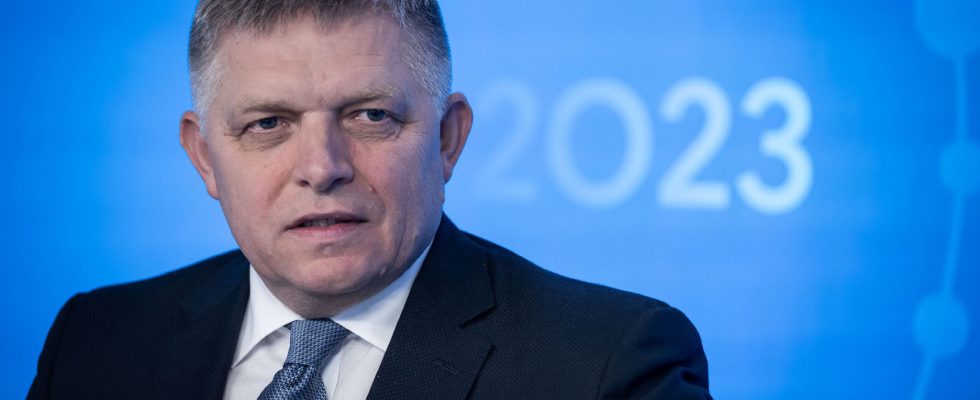The Slovak President entrusted the formation of the new government to the populist Robert Fico this Monday, October 2, following the victory of his party, Smer-SD in Saturday’s legislative elections. “The task of the head of state is to respect the result of the democratic elections and at the same time ensure the proper functioning of our constitutional bodies,” Zuzana Caputova said in a statement before the official ceremony broadcast on television.
The populist Smer-SD party, led by former Prime Minister Robert Fico, received 23% of the vote in the vote ahead of the centrist Progressive Slovakia party which received 18% of the vote. Populists therefore need coalition partners to achieve a majority and form the government. “Slovakia and its people have bigger problems than (relations with) Ukraine,” Robert Fico told reporters on Sunday. He added that Ukraine was “a huge tragedy for everyone” and called for peace talks because “further killings will not help anyone.” During the campaign, Robert Fico, 59, promised that Slovakia would not send “a single ammunition” to Ukraine and called for better ties with Russia.
Analysts say a Fico government could radically change Slovakia’s foreign policy to resemble that of Hungarian Prime Minister Viktor Orban. Hungary is seen as a troublemaker within the EU, often criticized over rule of law issues and for obstructing EU and NATO efforts to help Ukraine. Viktor Orban himself congratulated Robert Fico on X, formerly Twitter, “for his indisputable victory in the Slovak parliamentary elections”. “It’s always good to work with a patriot. I’m looking forward to it!” underlined Mr. Orban. However, Robert Fico said that Slovakia’s foreign policy orientation would not change, because “we are naturally members of the EU.” “This obviously does not mean that I cannot criticize things that I do not like within the EU,” he clarified.
Aid to Ukraine
Smer won 42 seats out of 150 in Parliament and therefore needs coalition partners to obtain a majority. Hlas-SD, which emerged in 2020 from a split from Smer, is a potential partner with 27 seats. Its president, Peter Pellegrini, served as prime minister in 2018 after the resignation of Robert Fico, amid large protests following the murder of journalist Jan Kuciak and his fiancée, Martina Kusnirova. Jan Kuciak discovered links between the Italian mafia and the government of Robert Fico in his last article, published posthumously.
According to Peter Pellegrini, the presence of two former prime ministers in the same government is not a good idea, but that did not mean that such a coalition was impossible. The two parties could team up with the Slovak Nationalist Party (SNS), which won 10 seats, for a parliamentary majority of 79 seats. Robert Fico has already governed twice with the SNS, which like him is opposed to military aid to Ukraine. Slovakia is among the main European donors to Ukraine, given the size of its economy.
Rise of disinformation
The next parliament will also include former Prime Minister Igor Matovic’s centrist OLaNO party, which fought with a Smer member during the election campaign. The centrist Christian Democrats and the right-wing SaS also gained enough votes to have seats in parliament. The election campaign was marred by particularly high rates of online disinformation, often targeting progressive Slovakia’s president, Michal Simecka, vice-president of the European Parliament.
Slovakia became an independent country in 1993, following a peaceful separation from the Czech Republic, when Czechoslovakia got rid of the totalitarian communist regime in 1989. Mr. Fico’s campaign was deeply marked by rhetoric against the LGBTQ+ community and migrants, which has sparked concern among non-governmental organizations.
